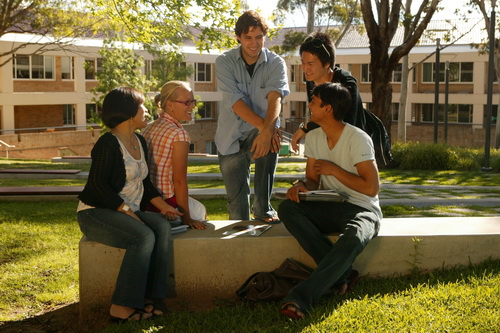If you don’t have an easy answer to the question “Where are you from?” and your closest friends are from six different countries, chances are you’re a third culture kid. The term was coined by Ruth Hill Useem, an American sociologist and anthropologist in the 1950s to describe children who spend a significant portion of their lives outside of their parents’ native culture.
Hannah Smith of Harrow International School of Beijing has written a blog post on the experience of being a third culture kid in Beijing on The Guardian’s Student Blog.
She writes:
Most students at my school aren’t from one particular place. Sure, our passports might say we’re British or Malaysian, but it’s more complicated than that. Where you’re “from” is less about birthplace and more about cultural identity; as an expat student your cultural identity ends up being difficult to categorise.
Third culture kids quite often feel more connected to each other than to their parents culture or the society they live in. Theirs is an experience that only each other can understand. Research from around the world has shown that third culture kids from completely different cultures share more in common with each other than with peers from their parent’s original society.
Quote:
I feel like a foreigner everywhere I go, a sentiment echoed by other students at international schools like mine. Mixed-race students who travel a lot while growing up can lack a cultural identity and also have to struggle with the fact that they don’t have a history – or not one that’s easily explained.
Kamalabadi says: “I very much feel like a cyber-age person, with bits and pieces of my background stuck together like a montage from the things I read, movies I watch and places I’ve been.”
And while third culture kids build connections to all of the societies they are exposed to, they generally don’t feel real ownership of any.
Quote:
For me, a cultural identity is something I have to cultivate and maintain, not something that falls into place naturally. I’ve heard my accent becoming progressively more American over the last five years. This is jarring because my vaguely British accent was the last real reminder of where I was born. Without it, how am I supposed to tell people I’m from the UK?
I’ve had to make a concerted effort to retain my nondescript, regionally ambiguous “English” accent because without it, I don’t have any proof that I was from the UK at all. My passport might as well have been Taiwanese.
This lack of definition means that I’ve ended up in a murky haze of different cultures, with bits and pieces from everywhere I’ve lived and everyone I’ve met. I count with my fingers the way they do in Taiwan and I grew up eating roti in Singaporean food courts and goose fat noodles at my grandmother’s house in Kaohsiung.
The good news for parents of third culture kids is that according to Useem they are more mature as teenagers, much more likely to be linguistically adept, and four times as likely as non-third culture kids to earn a bachelors degree.
Photo courtesy of Flickr.com




